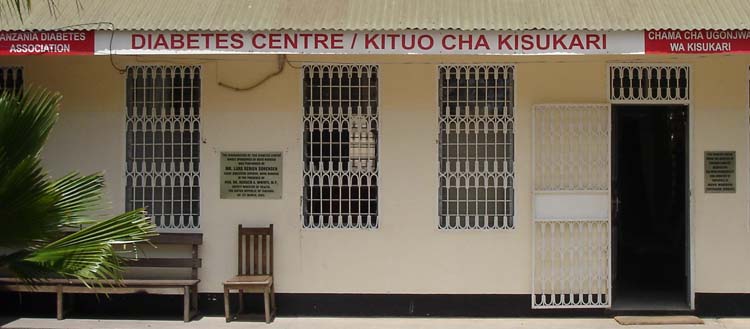Access to insulin remains highly unequal
To mark World Diabetes Day on 14 November 2023, The Lancet Diabetes & Endocrinology is launching an initiative to stimulate research into inequalities in access to treatment for type 1 diabetes. David Beran, assistant professor in the Department of Health and Community Medicine and in the Diabetes Centre at the UNIGE Faculty of Medicine, will be at the helm, with the aim of defining a global action plan. Find out more in an editorial in Lancet Diabetes & Endocrinology.

© David Beran, UNIGE. A diabetes centre in Tanzania.
According to WHO figures, more than 9 million people live with type 1 diabetes, a condition that generally appears in childhood and whose causes are still poorly understood. Currently, the only known treatment is the regular administration of insulin. And while the condition is widespread, access to treatment remains highly unequal. "The discovery of insulin 100 years ago changed type 1 diabetes from a condition with high mortality to a chronic condition," says David Beran. "However, even today, many people still do not have access to insulin therapy, even though it is essential for their survival. In this sense, type 1 diabetes is a good marker of the effectiveness - or lack of thereof - of healthcare systems.”
Defining a global action plan
A comprehensive, person-centred global plan is still needed to meet the needs of society and healthcare systems to address existing and future inequalities, and to ensure that innovation continues to improve the lives of people with type 1 diabetes worldwide. This approach should provide the global health community, national policy makers, opinion leaders, physicians, patient organisations and donors with a clear roadmap.
The Commission set up by The Lancet Diabetes & Endocrinology aims to encourage multi-sectoral research that takes into account life courses, environments and healthcare systems. "With a wide range of experts, we will be looking at the existing literature, as well as case studies and other research, to identify and prioritise existing challenges and to propose pragmatic and effective recommendations that can be applied in all countries, including low-income countries where the burden of chronic diseases is constantly increasing," adds David Beran.
Geneva at the heart of the global health ecosystem
To maximise the impact of this Commission, dissemination activities will be communicated, drawing on Geneva's unique position as "world health capital". This Commission adds value to a broader UNIGE programme supported by the Swiss government, which aims to develop a knowledge platform to support the translation of science into policy.
